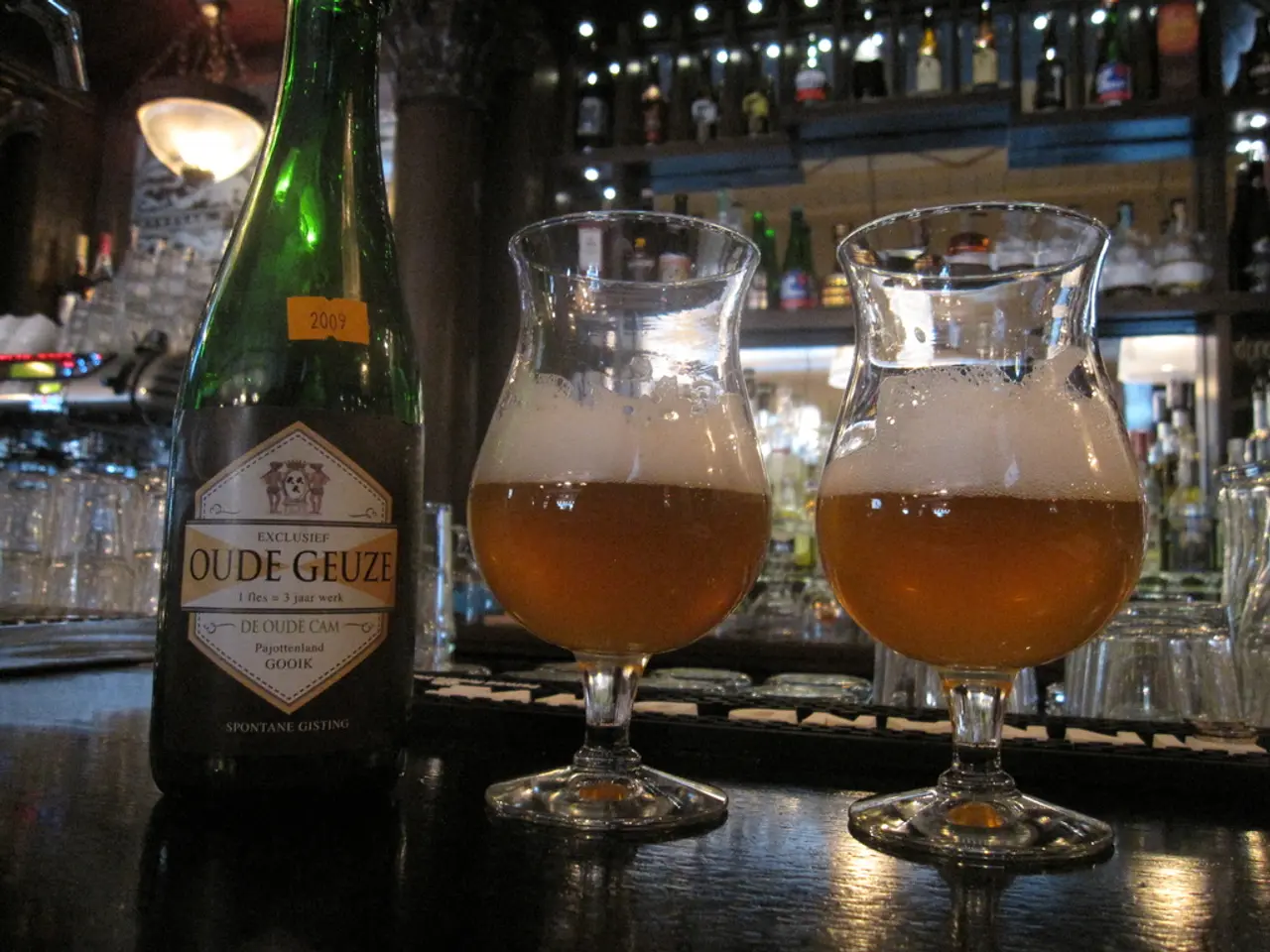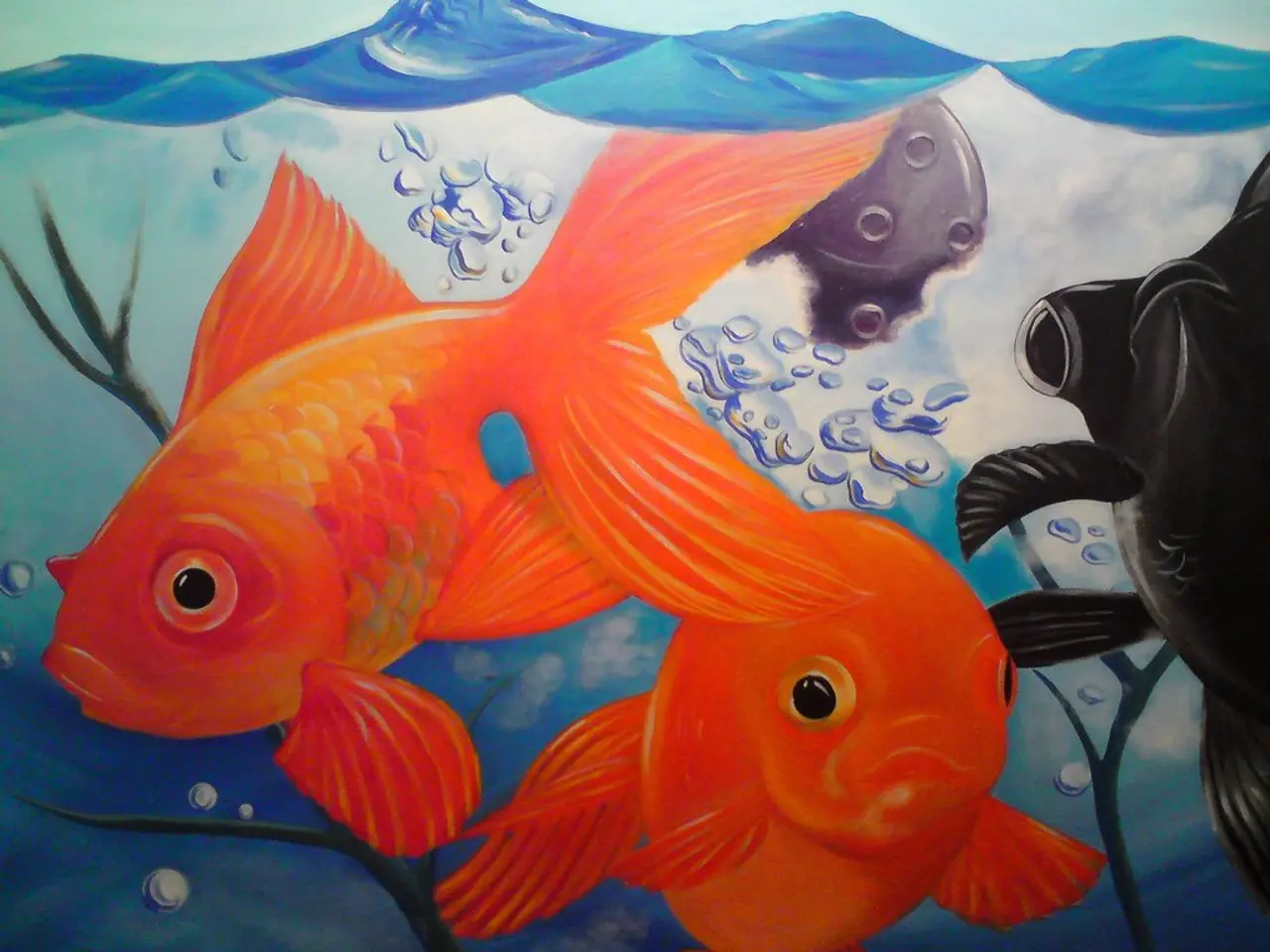Scientist Explores Grape Delights of Georgia in the Context of EU's Eco2Wine Scheme
In the heart of the Caucasus, a significant study has shed light on the preferences of local wine consumers. Funded by Horizon Europe, the Eco2Wine project, launched in 2023, has been delving into the intricacies of Georgian wine consumer perceptions[1][2].
The study, conducted by Capucine Dentraygues, a doctoral researcher from Geisenheim University, found that Georgian consumers place significant importance on wine authenticity, sustainability, and health benefits when choosing wines[1]. This research specifically examined how these key attributes influence consumer perceptions and preferences in the Georgian wine market.
The Eco2Wine project, which extends beyond local Georgian wine consumers to include a broader international perspective, aims to strengthen global innovation and communication in viticulture[3]. Coordinated by the University of Milan, the four-year project involves academic and industry partners from Georgia, Italy, Germany, France, Spain, Slovenia, and South Africa[4].
Participating institutions include Georgian Technical University, the University of Burgundy, Geisenheim University, the University of Perugia, the University of Ljubljana, the University of Cádiz, Stellenbosch University, and the Spanish National Research Council.
The study, which is part of the ongoing research in the field of Georgian wine, follows a previous study conducted in the country[5]. The findings of this latest research will provide insights into public attitudes toward natural, traditional, and microbiologically enhanced winemaking, as well as wine authenticity, sustainability, and healthiness[6].
The results of the study are currently being analysed, and they will be published in the coming months. The total funding for the Eco2Wine project is estimated at €2.4 million. The project does not repeat the focus on local wine consumer perceptions, natural, traditional, and microbiologically enhanced winemaking, public attitudes toward wine authenticity, sustainability, and healthiness, as these were addressed in the previous study[7].
The Eco2Wine project's findings will provide additional insights into global viticulture strategies based on scientific evidence, furthering its goal of advancing sustainable wine production and marketing in Europe and partner countries. This research underscores the growing importance of sustainability and authenticity in shaping purchasing decisions in the wine sector, reflecting broader trends in consumer demand for environmentally and socially responsible products[1].
[1] Eco2Wine Project [2] Georgian Wine Journal [3] Eco2Wine Project: Strengthening Global Innovation and Communication in Viticulture [4] Eco2Wine Project Consortium [5] Previous Study on Georgian Wine Consumer Perceptions [6] Eco2Wine Study Findings [7] Eco2Wine Project: Focus on Developing Future Strategies Based on Scientific Evidence
- The Eco2Wine project, extending beyond local Georgian wine consumers, also explores health-and-wellness aspects, as it aims to strengthen global innovation and communication in viticulture.
- In addition to environmental-science research, the project investigates the growing importance of technology in shaping future strategies for sustainable wine production and marketing.
- As part of the broader education-and-self-development focus, the Eco2Wine project emphasizes the importance of fitness-and-exercise for winemakers, stressing the need for a healthy workforce in the vineyards to ensure sustainable wine production.




